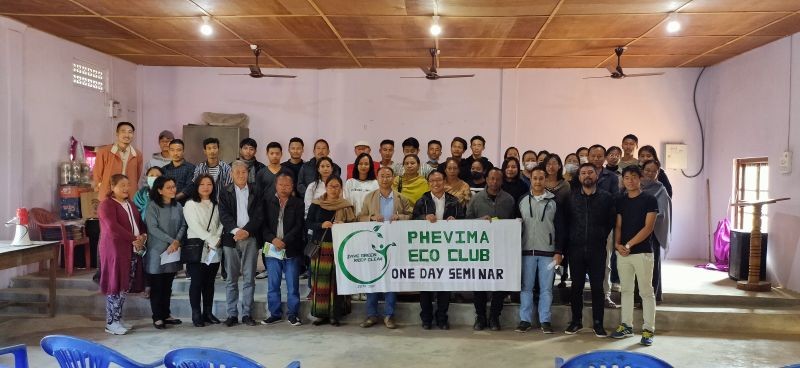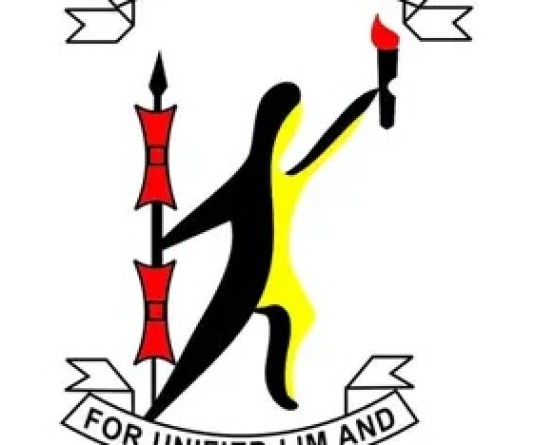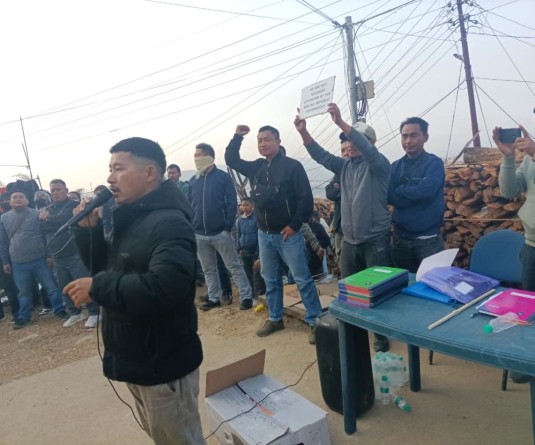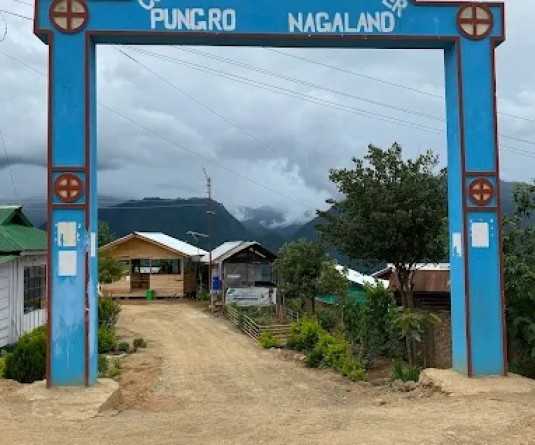Participants with officials and others during the seminar on ‘best practices on solid waste management’ held at Kacharigaon Phevima village, Dimapur on January 26.

Phevima Eco Club continues to strive for a ‘model clean and green village’
Dimapur, January 27 (MExN): A seminar on ‘best practices on solid waste management’ focusing on zero waste was held at Kacharigaon Phevima village, Dimapur on January 26. It was organized by Phevima Eco Club, dedicated to a “model clean and green village”
The interactive seminar and demonstration were conducted by Pro Rural, a Dimapur based NGO which has collaborated with Dimapur Municipal Council on Waste Management practices in 38 colonies in Dimapur. The seminar was co-facilitated by Lieutenant Col Joy Choudhury, Zila Sainik Board.
Paul Lokho, founder of Pro Rural made a presentation on waste segregation and its methods, waste management regulations and the negative impacts of solid waste on the environment.
Neili Konyak, Project Coordinator of Pro Rural demonstrated the process of home composting with G2G Composter (Garbage to Gold) powder for turning household waste into compost manure. The benefits of the liquid by product from the process, for kitchen and flower gardening, as well as cleaning septic tanks, pipes and drains, were illustrated.
Adrian Mahung, Consultant with DMC on waste management and legacy waste gave inputs on the ways and possibilities of collaboration, for source segregation, dealing with non bio-degradable waste disposal, and the negative effects of waste burning, especially multi-layered plastics (MLPs) being carcinogenic.
The Village Council, Chairman Vitho Zao delivered the opening note. Later, he also informed on the resolutions including ‘no waste burning’ and ways forward to implement the methods taught.
According to a press release received here, volunteers from Phevima Eco Club will be trained for commercial production of G2G Composter Powder under the aegis of Pro Rural.
The seminar was a step towards engaging community participation in waste management, leading to a zero waste model village, for others to replicate throughout Nagaland, by focussing on source segregation, primary and secondary collection and processing, it added.
The release said that a commitment from volunteer participants to a pilot initiative, in collaboration with Pro Rural, for home composting, is the first concrete step, from the seminar.
The programme concluded with discussion with the participants, eager to implement the ideas, particularly in house production of G2G Powder, spreading community awareness, source segregation and institutional community composting.






